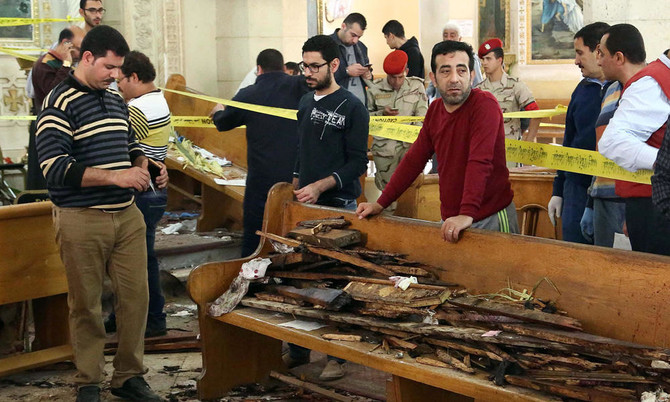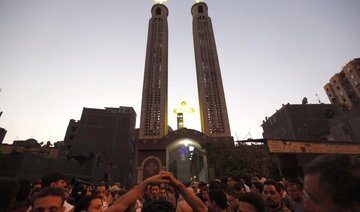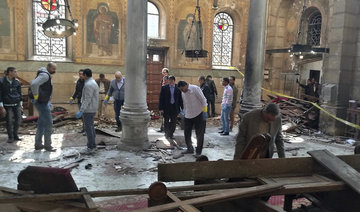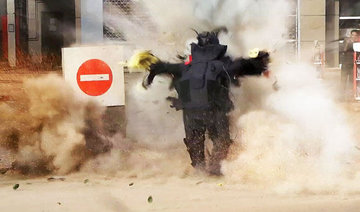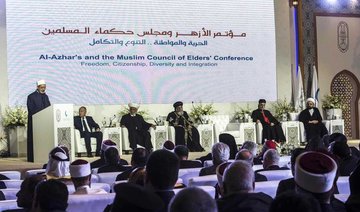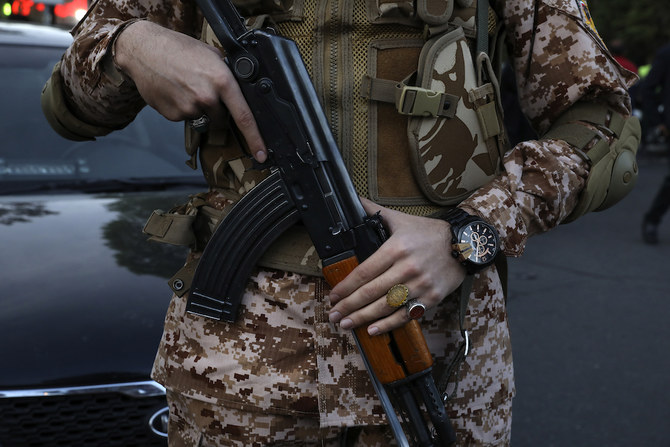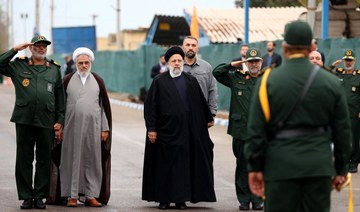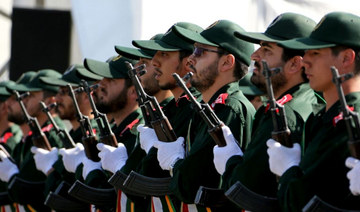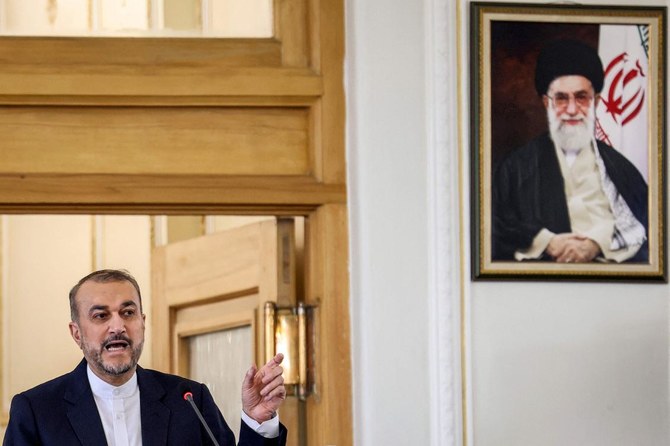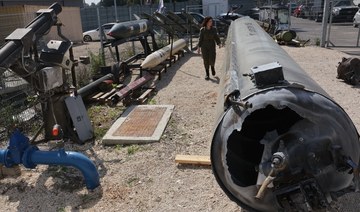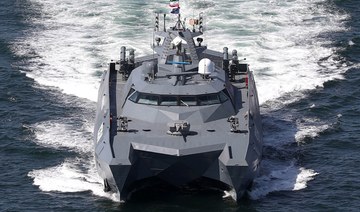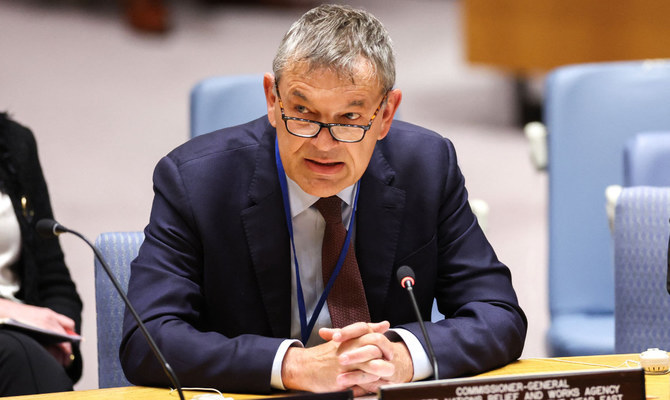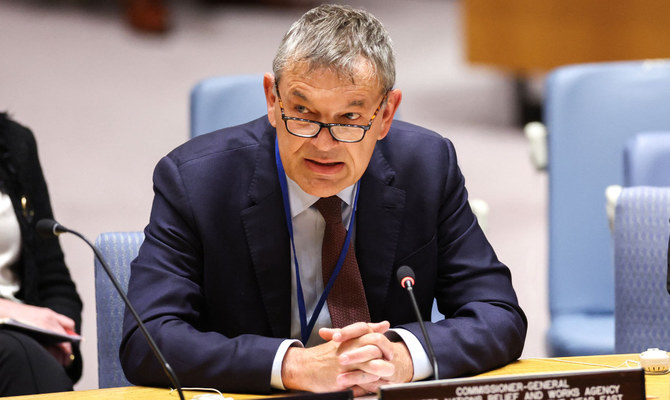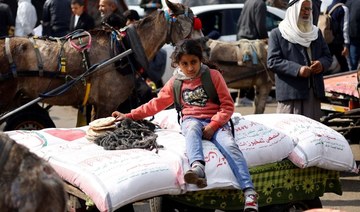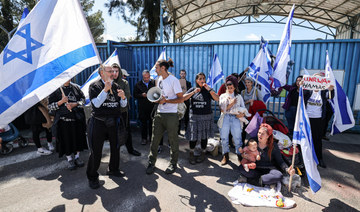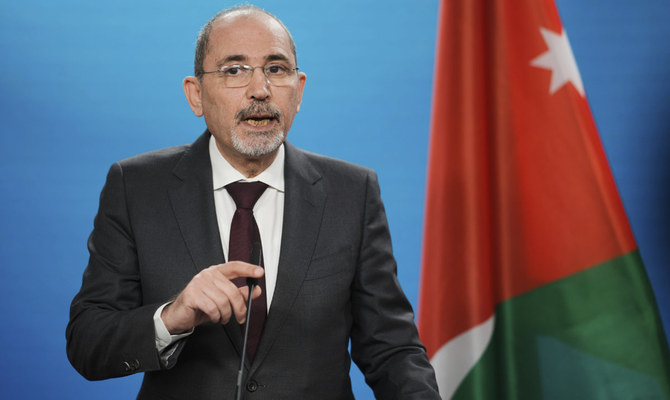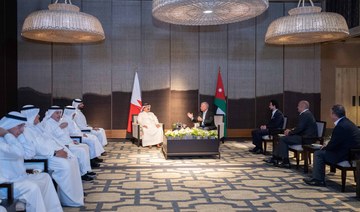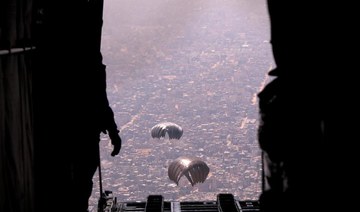TANTA,Egypt/CAIRO: At least 44 people were killed in bomb attacks on the symbolic cathedral seat of the Coptic Pope and another church on Palm Sunday, prompting anger and fear among Christians and troop deployments across Egypt.
Daesh (Arabic Acronym for Islamic State) claimed responsibility for the attacks, which also injured more than 100 people and occurred a week before Coptic Easter, with Pope Francis scheduled to visit Egypt later this month.
The assault is the latest on a religious minority increasingly targeted by Islamist militants, and a challenge to President Abdel Fattah El-Sisi, who has pledged to protect them as part of his campaign against extremism.
The first bombing, in Tanta, a Nile Delta city about 100 km (60 miles) north of Cairo, tore through the inside of St. George Church during its Palm Sunday service, killing at least 27 people and injuring at least 78, the Ministry of Health said.
The second, carried out a few hours later by a suicide bomber in Alexandria, hit Saint Mark’s Cathedral, the historic seat of the Coptic Pope, killing 17 people, including three police officers, and injuring 48, the ministry added.
Coptic Pope Tawadros had been leading the mass at Saint Mark’s Cathedral at the time of the explosion but was not injured, the Interior Ministry said.
“These acts will not harm the unity and cohesion of the people,” he was later quoted as saying by state media.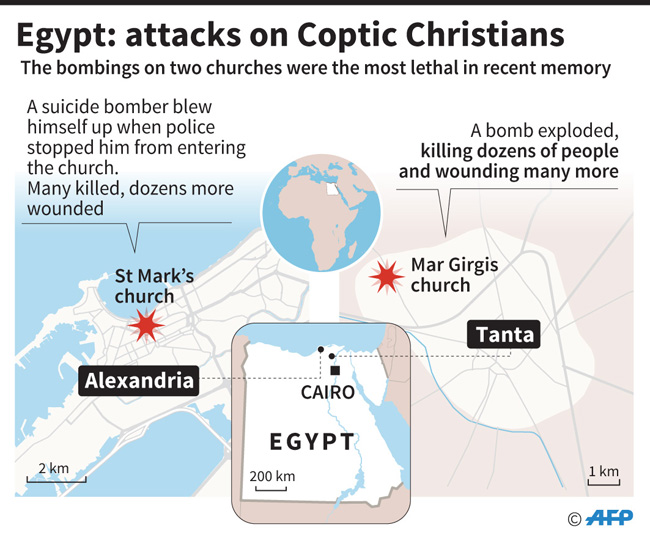
El-Sisi ordered troops be immediately deployed to assist police in securing vital facilities, a statement from his office said, a rare move for the general-turned-president, who as defense chief led the military’s 2013 ouster of the Muslim Brotherhood’s President Mohamed Mursi.
Deflecting Western criticism that he has suppressed political opposition and human rights activists since he was elected in 2014, El-Sissi has sought to present himself as an indispensable bulwark against terrorism in the Middle East.
“The attack...will only harden the determination (of the Egyptian people) to move forward on their trajectory to realize security, stability and comprehensive development,” El-Sissi said in a statement.
President Trump, who hosted El-Sissi last week in his first official visit to the US, expressed support for a leader he has said he plans to work more closely with on fighting Islamist militants, who El-Sissi identifies as an existential threat.
“So sad to hear of the terrorist attack in Egypt. US strongly condemns. I have great confidence that President El-Sissi will handle situation properly,” Trump wrote on his official Twitter account.
Hundreds gathered outside the Tanta church shortly after the blast, some weeping and wearing black while inside, blown apart pews sat atop tiles soaked with blood.
“There was blood all over the floor and body parts scattered,” a woman who was inside the church at the time of the attack said.
“There was a huge explosion in the hall. Fire and smoke filled the room and the injuries were extremely severe,” another woman, Vivian Fareeg, said.
“We feel targeted“
Daesh’s branch in Egypt has stepped up attacks and threats against Christians, who comprise about 10 percent of Egypt’s 90 million people and are the biggest Christian minority in the Middle East.
In February, scores of Christian families and students fled Egypt’s North Sinai province after a spate of targeted killings.
Those attacks followed one of the deadliest on Egypt’s Christian minority, when a suicide bomber hit its largest Coptic cathedral, killing at least 25 people. Daesh later claimed responsibility for that attack.
Daesh has waged a low-level war against soldiers and police in Egypt’s Sinai Peninsula for years but is now targeting Christians and broadening its reach into Egypt’s mainland. That is a potential turning point in a country trying to prevent a provincial insurgency spiraling into wider sectarian bloodshed.
Although Copts have faced attacks by Muslim neighbors, who have burnt their homes and churches in poor rural areas, in the past, the community has felt increasingly insecure since Islamic State spread through Iraq and Syria in 2014.
WATCH: Copts rally outside second Alexandria church hit by suicide bomber
“Of course we feel targeted, there was a bomb here about a week ago but it was dismantled. There’s no security,” said another Christian woman in Tanta in reference to an attack earlier this month near a police training center..
Wahby Lamie, who had one nephew killed and another injured in the Tanta blast, expressed exasperation.
“How much longer are we going to be this divided? Anyone who’s different from them now is an infidel, whether they’re Muslim or Christian. They see them as infidels,” he said.
“How much longer are these people going to exist? And how much longer will security be this incompetent?”
(Additional reporting by Ahmed Mohamed Hassan, Mahmoud Mourad, Mohammed Abdellah, Amina Ismail, Ahmed Aboulenein, and Mostafa Hashem)


